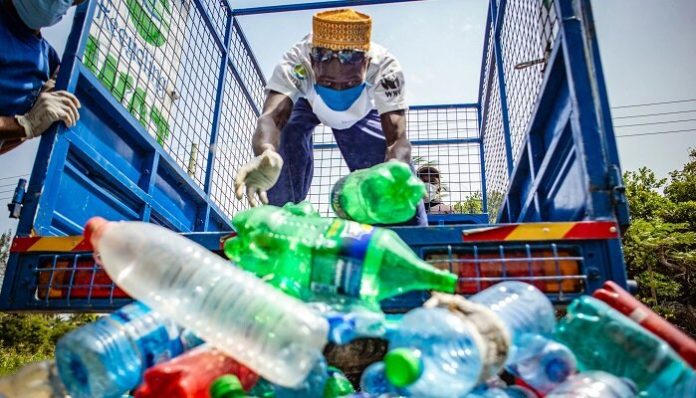In a recent move, investors that have combined assets of US$10 trillion have gone on to write to more than 35 companies in the FMCG as well as grocery retail sectors, asking them to take quick action so as to reduce the consumption of plastic and pollution too.
The investor group, which happens to be 185 in number, is said to be the largest ever coalition in order to pressurise companies in terms of plastics and has investors from the likes of Axa Investment Managers, Rockfeller Asset Management, ASN Bank, and Achmea Investment Management.
The group, which happens to be coordinated by the Dutch Investors for Sustainable Development, warns that failure to address these impacts of pollution by plastics will expose the companies to a great number of financial risks. These risks, apparently, can go on to threaten brand appeal, value creation, and investment returns given the action wave that is essential to tightening the legislation across the world as well as the surging number of lawsuits against the organisations that happen to be failing to establish, let alone achieve, their sustainability objectives.
The three precise demands as per the joint statement focus on supporting ambitious plastics policy for better outcomes, committing, and at the same time delivering a total reduction of single-use plastic packaging, such as executing the reuse system and also addressing the toxicity when it comes to the value chain.
As per the joint letter, the investors as well as their representatives believe that the companies must go on to set their objectives higher and act in a more swifter way to address the plastic crisis by way of lessening the dependence on single-use plastic packages and working towards bringing plastic production as well as its consumption within the defined limits and in alignment with the Paris Agreement as well as the Kunming-Montreal Global Biodiversity Framework.
The coalition goes on to mention that plastic has a cost of UD$350 billion to society from GHG emissions, ocean pollution, and collection costs. Moreover, because of the increasing regulatory pressure as well as demand, companies are also exposed to prominent levels of plastic-related risks.
As per the VDBP executive director, Angelique Laskewitz, it is indeed worrying that most companies in the FMCG sector are taking limited action so as to mitigate the financial risks that are often posed by plastics. There is a clear signal sent by investors to these companies that they are bound to face ever-increasing pressure if they do not act soon to reduce the plastic footprint to a great extent.
The signatories also went on to argue that the intensive production methods as well as the use of plastics are in a way causing untold damage to people’s health as well as the planet, with scientists affirming the fact that the clean-up is indeed futile if the production goes on to continue at the present rates. Furthermore, the investors are asking the plastic polluters to elevate their efforts so as to deal with the plastic crisis, and if not, the companies are going to miss the 2025 targets.
The coalition said that they expect the companies to make a tangible change by setting more ambitious objectives and taking more robust actions. Companies have to set a clear goal of significantly reducing single-use plastic consumption in total terms and phasing out hazardous chemicals.
There also happen to be concerns raised by investors about companies lobbying against the ambitious policies. A recent study that was conducted by McDonald’s predicted that the 2030 mandatory reuse targets set by the PPWR would go on to increase plastic packaging waste by almost 300% when it comes to their dine-in consumption and by 1500% as far as takeaways are concerned.
Recently done analysis shows that when it comes to the European consumer product sector, engagement on the PPWR revision pinpointed that the industry associations within the sector are engaged overwhelmingly negatively, with the PPWR noting that the lobbying efforts had already gone on to succeed in lowering the targets and also weakening the measures that happen to be considered by the European Commission.
A senior engagement specialist, Arthur van Mansvelt, who works for an investment management company, said that most of the companies are not acting fast enough in this scenario of a plastic crisis. Global Plastics Treaty gives out a unique and historic opportunity to take care of the problem within the source itself and not lobby against it.
The group does see the benefit when it comes to upscaling the reuse systems so as to reduce resource usage, energy and toxic substance use, water use, and pollution. They therefore expect the companies to bring to the fore a clear plan of action that minimises material consumption and hence prioritises single-use packaging elimination. As per a recent report by the Minderoo Foundation, single-use plastics happen to be at an all-time high, with an extra six million metric tonnes manufactured between 2019 and 2021.
Notably, ExxonMobil, Dow, and Sinopec were mentioned as the top pharmaceutical companies that produced virgin polymers that are used for single-use plastic. Simultaneously, ExxonMobil and Indorama Ventures happen to be the largest contributors to the overall cradle-to-grave GHG emissions that come from single-use plastic waste, says Minderoo.
A radical approach has been demanded by the coalition to the plastic issue, which includes the challenges arising from the use of hazardous chemicals. They put forth the fact that more than 3000 potentially hazardous chemicals have already been identified in the packaging of food items, including chemicals that happen to be added intentionally as well as otherwise.
As per the investors, the failure to take care of the issue of chemicals has been adding to the chemical pollution crisis, with hazardous chemicals being a part of the environment and also getting accumulated within the materials.
As per Axa Investment Managers, as major users of plastic packaging in food retail as well as consumer goods, companies have a great role to play in making a scalable change and elevating the financial resilience of their business models by taking care of the plastics crisis. Because of the increasing concerns as well as rising awareness when it comes to biodiversity loss and nature degradation, the food industry has to shift towards more sustainable manufacturing as well as consumption, and an important element in this regard is to lessen the industry’s reliance on plastics.

























